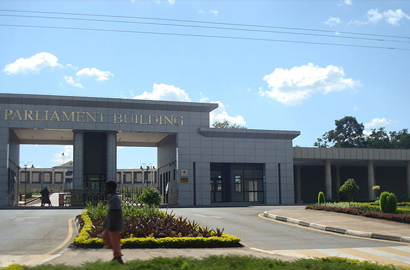Acknowledging that the development the IT society has registered considerable progress in the ICT sector, Malawi has drafted its new information and communications Technology Bill set to completely overhaul its approach to the new technology phenomenon.
The Bill entitled “Electronic Transactions and Management Bill 2013” that was rolled out in the beginning of October 2013 covers 11 issues set help control operations in Malawi’s ICT sector.
The launch comes at a time when Africa is the region with the highest growth rates in ICT compliancy over the past three years with mobile broadband penetration increasing from 2 per cent in 2010 to 11 per cent in 2013. The most significant steps of these changes are networks digitalization, components miniaturization and more recently the development of the Internet and mobile telephones, notes the bill set to offer guidelines in light of the drastic growth. ICT has thus created new legal issues which require specific legal answers which has brought about the need to roll out the new information and communications technology bill.
The main objective of the Government is to have the country benefit from a true technological leap which may speed up its economic growth by enabling the development of new economic activities due to the implementation of a secure legal framework regulating the use of ICT, reports say. Through this bill, Malawi is convinced that its agro-based economy can drastically grow and diversify through participation in the information society and that in order to fully benefit from the information revolution. Thus, plans are underway for Malawi to modernize various sectors of its economy using ICT.
The new bill tackles issues such as the Legal recognition of electronic messages; proceedings applicable to the conclusion of electronic contracts; legal responsibility of various actors; consumer protection with respect to e-commerce; taxation; online financial services; and encryption. The Bill also covers the issues of Cyber criminality; Data protection; Domain name; and E-Government.
According to reports, the bill does not recognize the ‘Legal recognition of electronic messages’ in the current legal framework in Malawi, yet it is a condition to the development of electronic transactions in the country. However, it says that the electronic documents should have the same legal probative force as paper documents.
The ‘Domain name’ which has been a challenge in the ICT sector in Malawi has also been dealt with in the Bill and sets out rules in accordance with international principles saying the management of the registration of domain names is essential to the development of the e-economy.
The bill also observes the rules regulating the conclusion of contracts need to be specified and clarified in order to ensure security with respect to electronic transactions under the ‘Proceedings applicable to the conclusion of electronic contracts’ section.
While in respect to the internet, under the “Legal responsibility of various actors’” section regarding TV, radio or written press, the freedom of speech is expected to be limited by certain principles of public order. It also precisely defines the responsibility of technical service providers and editors of online contents.
Online purchase of goods and services would is covered by the bill under the section ‘Consumer protection with respect to e-commerce”. It tackles online purchase of services or goods which it says require the adoption of specific provisions in addition to classical consumer rules. Moreover, it provides for specific obligations lying on professionals regarding the display of information and online advertising.
Taxation is also covered in the bill, as it explains in detail the circumstances under which value added tax and customs fees can apply to e-transactions.
Under ‘Online financial services’ the Bill gives the importance and the specificity of the risks of these services which it says have driven the Government to introduce very strict provisions regulating the online provision of financial and banking services.
The Bill also looks at ‘Encryption’ where specific provisions have been laid down to ensure the security of digital economy. Generally, the Bill provides for the legal framework regulating encryption in conformity with international best practices.
Last but not least, it deals with the issue of ‘Cyber criminality’ where it sets out the principles for combating crimes in the e-environment and establishes a dedicated institution, the Malawi in full first and abbreviate Computer Emergency Response Team to fight against cyber threats and attacks.
The Bill also offers ‘Data protection’ topped with specific provisions in order to regulate online collection of personal information regarding users and imposing systematic information on the purposes of the data processing and the rights of the data subject, say reports.




